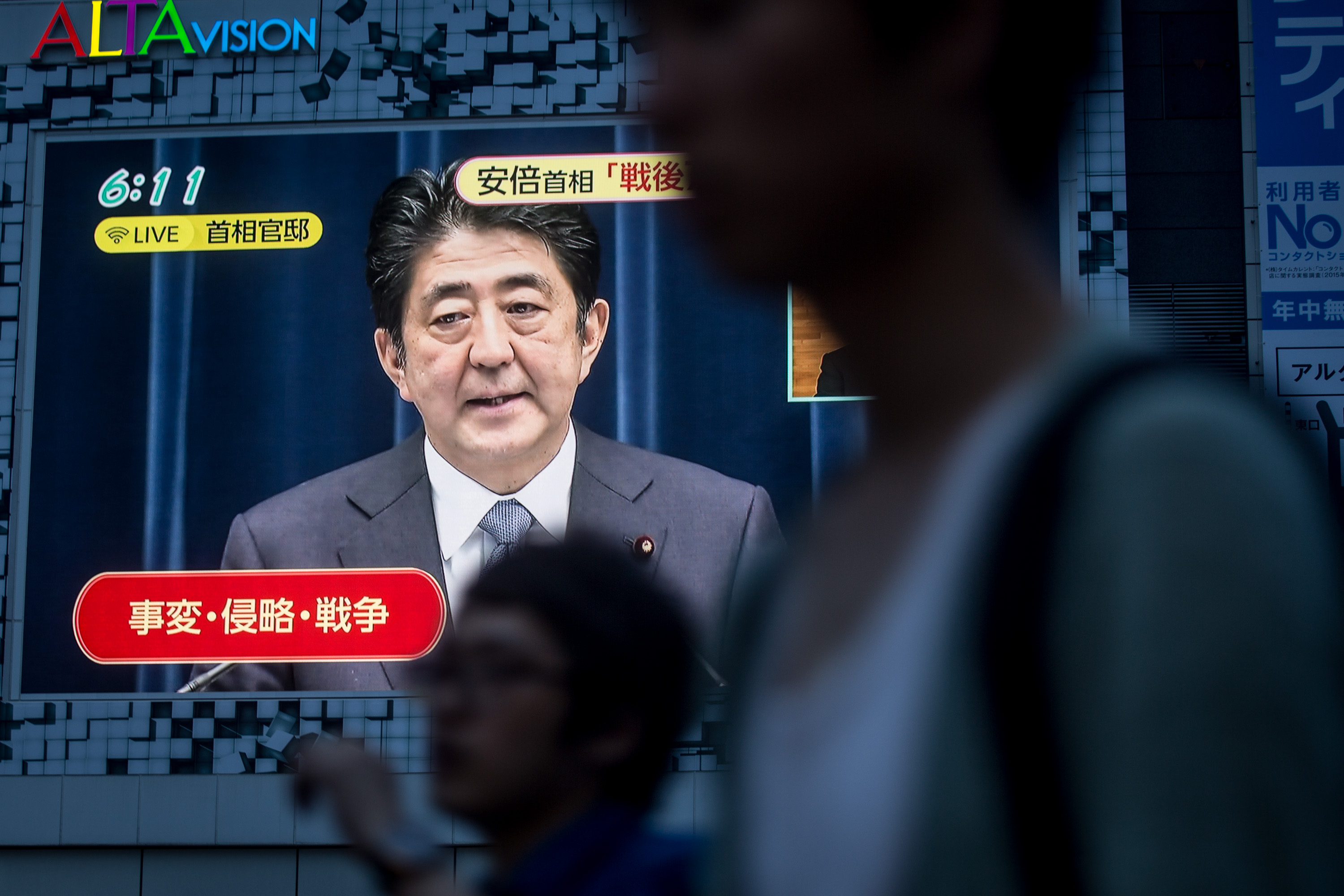
Japanese Prime Minister Shinzo Abe speaks on a live national broadcast. Photo: Chris McGrath/Getty Images
By Toshio Aritake
China and Russia are making headlines because of crackdowns on their domestic media. But it seems to be happening in Japan as well, although in a slightly more opaque fashion.
On April 1, the first day of a new business year in Japan, three longtime popular newscasters of network television news shows will be quitting in a highly unusual coincidence.
They are Hiroko Kuniya, anchor of Close-up Gendai (Today’s Close-up), a half-hour prime-time news show of the national broadcasting station NHK; Ichiro Furutachi, newscaster managing the Hodo (reporting) Station of TV Asahi; and Shigetada Kishii of the NEWS23 show of Tokyo Broadcasting System (TBS) Television.
They have been known for not mincing words when tossing questions at interviewees, including politicians, and departing from the country’s notoriously junky variety show and soap opera formats. Kuniya, for example, did a show on why hate speech against Koreans is still pervasive 70 years after World War II ended, a very sensitive subject in Japan.
The three networks said only that they are making changes, including the replacement of the newscasters, as part of their routine, spring refreshing policy, a plausible explanation in a country where a new business year starts when the cherry trees start to blossom.
The real story may be self-censorship by the networks’ CEOs, who have been intimidated by Prime Minister Shinzo Abe. His cabinet minister in charge of the broadcasting law, Sanae Takaichi, told a parliamentary session on Feb. 9 that she can order television stations to stop broadcasting programs that are politically biased. The law, she said, requires that the broadcasting media must be “politically neutral” and “report facts without altering them.” The law was enacted under Gen. Douglas McArthur’s U.S. occupation forces.
Kazuo Kobayashi, a former NHK Moscow bureau chief who had worked with Kuniya, told me Feb. 23 that Kuniya’s departure would mean that Close-up Gendai is no longer a serious news program. “I am totally against replacing her,” he said.
There are several reasons the Abe cabinet seems to be seeking to intimidate the media. Some journalists have questioned Abe’s military buildup and re-interpretation of the nation’s constitution to allow Japanese military forces to operate outside of Japan. Abe also campaigned on promises to rescue Japanese citizens kidnapped by North Korea and to improve the economy through “Abenomics.” But both initiatives are faltering: North Korea cut off bilateral talks on investigations to find and return Japanese abductees to Japan and Abenomics is not creating the 2 percent economic growth rate Abe promised.
Toshio Aritake is a member of the Foreign Correspondent’s Club of Japan, which is an affiliate of the OPC.
